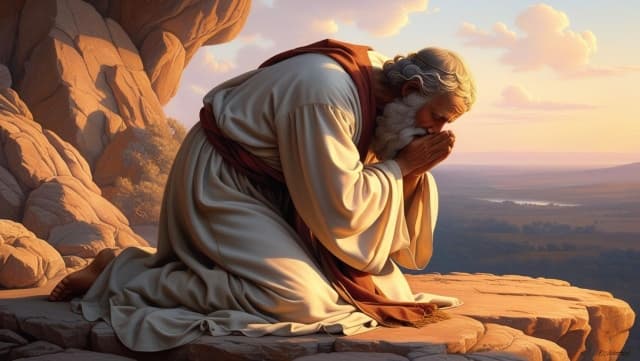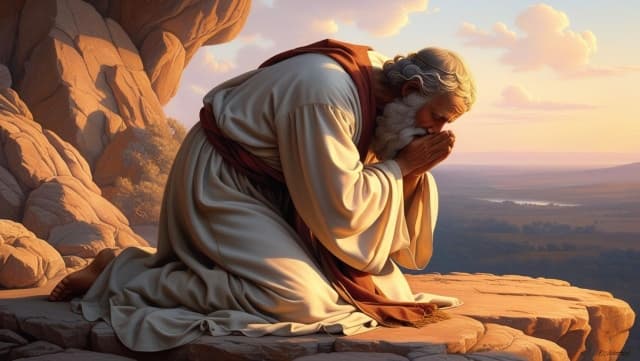Bethlehem: The True Meaning of Christmas
One of the favorite Christmas hymns is O Little Town of Bethlehem. It was written by Phillips Brooks in 1867. Brooks wrote this beloved hymn as a way to remember his celebration of Christmas in Bethlehem two years before.
The hymn was inspired by the messianic oracle of Micah 5:2: But you, O Bethlehem of Ephrathah, who are one of the little clans of Judah, from you shall come forth for me one who is to rule in Israel, whose origin is from of old, from ancient days. This great oracle is known by many people, but the majority of them truly do not understand the radical implications of Micah’s oracle.
The prophet Micah was a rural prophet who prophesied in Judah in the eighth century B.C. A contemporary of the prophet Isaiah, Micah also lived in the chaotic days his society had to endure because of the oppressive policies of Assyria.
At the time Micah prophesied, Ahaz was king of Judah. Ahaz was one of Judah’s most evil kings. According to the author of 2 Kings, Ahaz did not do what was right in the sight of the Lord his God, as his ancestor David had done, but he walked in the way of the kings of Israel. He even made his son pass through fire, according to the abominable practices of the nations whom the Lord drove out before the people of Israel. He sacrificed and made offerings on the high places, on the hills, and under every green tree (2 Kings 16:2-4).
Micah came from a small village. We know little about his family. However, his oracles reveal that he was very familiar with the religious traditions of Israel. He also had a personal knowledge of the social and religious abuses in Judean society and was aware of the political corruption present in Judah in the eighth century.
Micah loved his country and he became the voice of God to champion the cause of the poor against the oppression of the rich. To Micah, the only hope for Judah was a new beginning. In the coming of the new king, Micah saw God’s new beginning. God was going back to Bethlehem, to give the nation a new David who would shepherd the people of Israel.
Micah’s view of this new David had many implications for the society of his days. Implicit in his words are three radical ideas.
First, the new David would be born in Bethlehem. This means that according to Micah, God was bypassing the splendor of the palace. By going back to Bethlehem, God was rejecting the corrupt political and religious policies of Ahaz.
Second, the new David would be born in a small village, away from the religious center of the nation. This means that according to Micah, God was rejecting some of the religious practices of the temple. In Micah’s view of the future, Zion shall be plowed as a field; Jerusalem shall become a heap of ruins, and the mountain of the house a wooded height (Micah 3:12).
Third, the new David would be born among common people, thus bypassing both the religious and political dignitaries of Jerusalem. The new David would do what the rulers, the priests, and the prophets failed to do: champion the cause of the poor and the oppressed.
To Micah, the oracle about Bethlehem and the coming of the new David meant the rejection of the paganization and the secularization of the political and religious life of Israel.
Micah’s message is still relevant in our own days. From the manger in Bethlehem to the doors of Wal-Mart, the celebration of the birth of the Child of Bethlehem has seen great changes.
A major change is the secularization of the birth of Christ among people of faith. Many churches are closing their doors on Christmas day because it falls on a Sunday. Thus, some churches are placing the opening of gifts on Christmas and family traditions above the celebration of one of the greatest events in the history of the church: the Incarnation of the Son of God. This gesture is almost as wrong as canceling Easter worship because it falls on Sunday.
Another major change is the reluctance of many people in our society, including some religious leaders, to celebrate Christmas in public. Out of consideration for other religions and secular groups, some stores, politicians, and even religious leaders are celebrating Christmas in a way that is “constitutional and culturally sensitive.” For this reason, they are refusing to mention the words “Christmas,” “Jesus,” “Christ,” or any other word that is associated with the religious meaning of the season.
Another change is the commercialism at Christmas. Today, the focus of the Christmas season is on dollars and cents. At Christmas, merchants think about profits and balancing the books. Merchants depend on Christmas to sell their merchandise and be profitable for the year. And yet, many merchants are eliminating any vestige of what is behind the season that brings so much profit to them.
Maybe it is time to go back to Bethlehem again. It is time to return to the original intent of Christmas. To do this, we have to pay close attention to the song of the angels:
“Glory to God in the heavenly heights,
Peace to all men and women on earth who please him” (Luke 2:14).
Have a blessed Christmas.
Claude Mariottini
Emeritus Professor of Old Testament
Northern Baptist Seminary
NOTE: Did you like this post? Do you think other people would like to read this post? Be sure to share this post on Facebook and share a link on Twitter or Tumblr so that others may enjoy reading it too!
I would love to hear from you! Let me know what you thought of this post by leaving a comment below. Be sure to like my page on Facebook, follow me on Twitter, follow me on Tumblr, Facebook, and subscribe to my blog to receive each post by email.
If you are looking for other series of studies on the Old Testament, visit the Archive section and you will find many studies that deal with a variety of topics.












